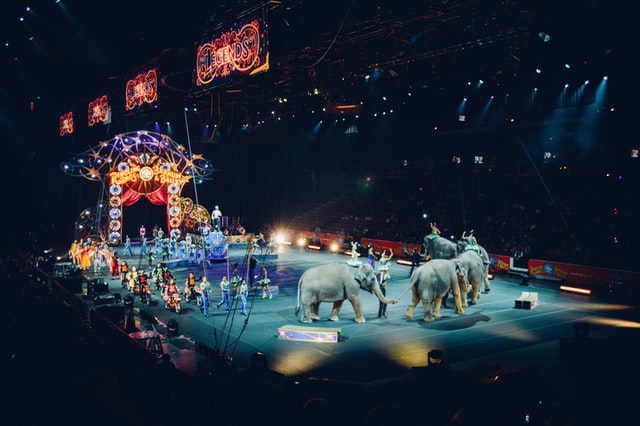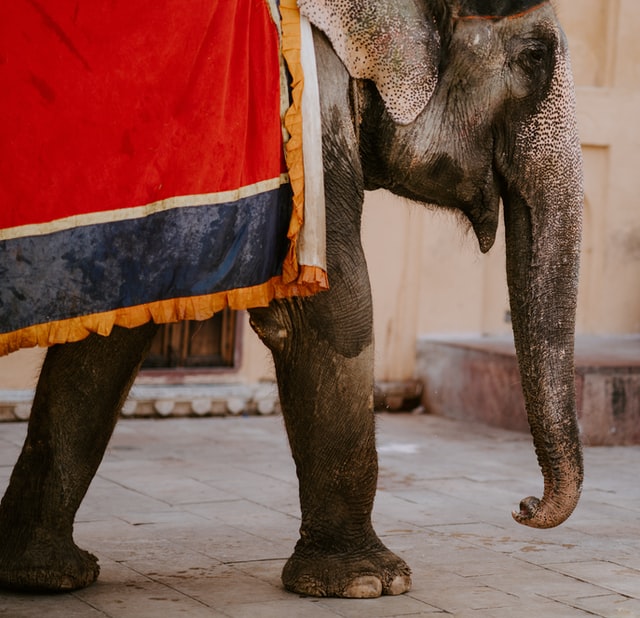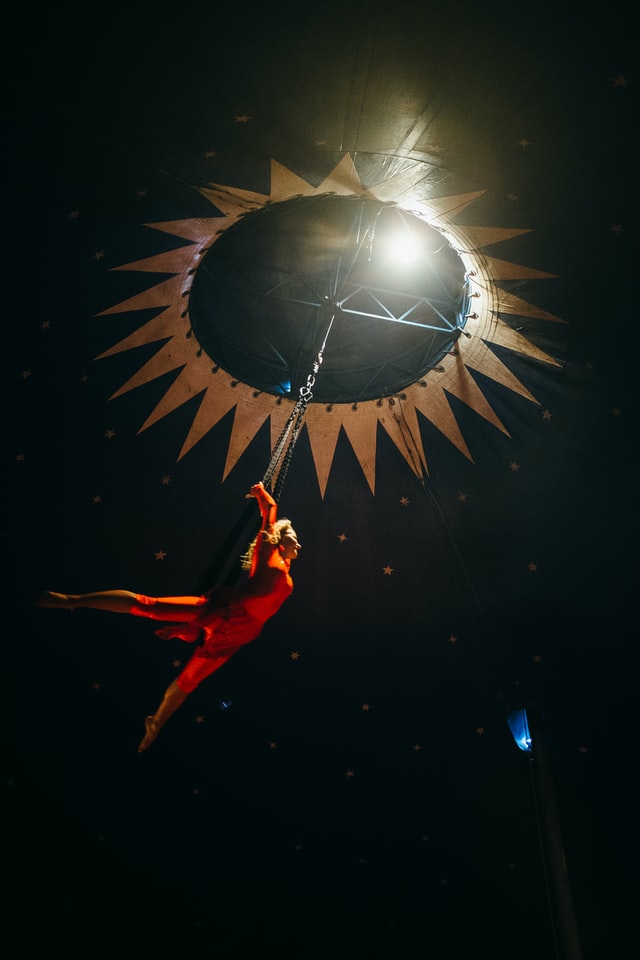
- Inspiring People -
- 6mins -
- 390 views
France to ‘gradually’ join 27 countries to ban wild animals in circuses
France has announced it will gradually ban the use of wild animals in travelling circuses as part of sweeping new animal welfare measures.
France to ban use of wild animals in circuses — no timeframe given
France’s Environment minister Barbara Pompili announced last month that the government planned to "gradually" ban mink farms in the country as well the use of wild animals in travelling circuses and the breeding of dolphins and orcas in captivity, saying "our attitude to wild animals has changed".

France joins 20+ European countries who have already banned or limited wild animals in circuses
(Paris) REUTERS – France will gradually ban the use of wild animals in circuses, phase out orca and dolphin shows and will ban mink farming for fur, the environment minister said on Tuesday 29 September.
The transition will take several years and existing animal shows will receive government support to switch to a new model, Environment Minister Barbara Pompili told a news conference.
“Today, I announce the progressive end of the presence of wild animals in travelling circuses, a ban on the presence of orcas and dolphins in dolphinariums not adapted to the needs of marine mammals, and the end of mink farming for fur,” she said.
She said the measures would affect about 80 circuses, which have some 230 animals, including big cats, elephants, hippos, wolves and others.
France, which has three dolphinariums, will not allow the opening of new ones and wants the closure of existing ones within seven to 10 years. She also wants the closure of four mink farms within five years.
The state will provide an aid package of more than 8 million euros ($9.36 million) to help animal shows switch to a new business model.
Some 20 European countries have already banned or limited the presence of wild animals in circuses. In France, many cities already do not allow circuses with wild animal shows to pitch their tents.
Head of the French animal shows association William Kerwich said the ban is “a knife in the back” of an industry already hurting from coronavirus crowd limits.
“It will put people out of work. And who will take care of the animals, they are born in captivity, they cannot be set free in the wild,” he said on BFM television.
Animal rights group Fondation Brigitte Bardot said in a statement it would welcome all circus animals, “who are currently kept captive and exploited in terrible circumstances”.
Source: Reuters

StopCircusSuffering.com lists the countries with full or partial bans:
EUROPE
- Austria: Nationwide ban on the use of wild animals in circuses.
- Belgium: Nationwide ban on the use of most wild animals in circuses (Parrots and camel are classed as domestic)
- Bosnia and Herzegovina: Nationwide ban on all animals in circuses
- Bulgaria: Nationwide ban on certain wild animal species in circuses, variety shows and other entertainment facilities
- Croatia: Nationwide ban on the use of wild animals in circuses
- Czech Republic: Nationwide ban on the use of certain species in circuses
- Cyprus: Nationwide ban on all animals in circuses
- Denmark: Nationwide ban on the use of certain species in circuses
- England: Nationwide ban on the use of wild animals in circuses
- Estonia: Nationwide ban on the use of wild animals in circuses
- Finland: Nationwide ban on the use of certain species in circuses
- France: Local bans in 50 towns and cities
- Germany: Local bans in more than 90 towns and cities
- Greece: Nationwide ban on all animals in circuses
- Hungary: Nationwide ban on the use of wild caught animals in circuses, the purchase and training of elephants and primates for circus performances and the purchase, training and use of CITES (Appendix 1) listed species in circuses
- Ireland: Ban on wild animals in circuses
- Italy: Ban on the use of animals in circuses – to be implemented
- Latvia: Nationwide restrictions effectively banning the use of wild-caught animals
- Luxembourg: Nationwide ban on wild animals in circuses
- Macedonia: Nationwide ban on the use wild animals in circuses
- Malta: Nationwide ban on all animals for performances, exhibitions, shows or training for the circus
- The Netherlands: Nationwide ban on the use and transport of animals in circuses, with exemptions for certain, mostly domestic, species
- Norway: Use of wild species effectively banned nationwide – positive list of permitted animals only includes domestic animals (apart from camels)
- Poland: Nationwide ban on the use of wild-born animals in circuses
- Portugal: Nationwide ban restricting the use of great apes in circuses and the acquisition and breeding of CITES listed species
- Romania: Nationwide ban on the use of wild animals in circuses (apart from certain exotic bird species and cetaceans)
- Scotland: Nationwide ban on the use of wild animals in circuses
- Serbia: Nationwide ban on the use of wild animals in circuses
- Slovakia: Nationwide ban on the use of wild animals in circuses
- Slovenia: Nationwide ban on the use of wild animals in circuses
- Spain: Local bans on the use of wild animals in circuses in more than 400 towns and cities including Barcelona
- Sweden: Nationwide ban on the use of certain species in circuses
- UK: Over 200 local authorities have bans on animal circuses (more than two thirds of these ban all performing animals, the remainder ban just wild animals). Scotland, England and Wales have passed bans on the use of wild animals in circuses; no such legislation is currently in place in Northern Ireland.
- Ukraine: Nationwide ban on “mobile menageries” and the transportation of wild animals for use in circus performances
- Wales: Nationwide ban on the use of wild animals in circuses
NORTH AMERICA
- USA: 102 partial or full bans on performing animals in jurisdictions in the US, in 33 states. (A ‘partial’ ban or restriction includes restrictions on specific species, or types of performance, or certain uses of animals or animal management practices (such as use of elephant hooks)).
- Canada: Local bans on the use of animals in circuses in more than 33 municipal jurisdictions including Vancouver
LATIN AMERICA
- Argentina: Local bans on the use of wild animals in circuses in over 20 cities including a ban in the city of Buenos Aires
- Bolivia: Nationwide ban on the use of wild and domestic animals in circuses
- Brazil: Local bans on the use of animals in circuses in 11 states and over 20 cities
- Colombia: Nationwide ban on the use of wild animals in circuses; Local ban on the use of animals in circuses in the capital, Bogota
- Costa Rica: Nationwide ban on the use of wild animals in circuses.
- Ecuador: Nationwide ban on the use of native wild animals; restrictions on the use of exotic animals; ban on the import of both native and exotic wild animals with circuses
- El Salvador: Nationwide ban on the “Income, use or abuse of wildlife species in all kinds of entertainment”
- Guatemala: Nationwide ban on the use of animals in circuses
- Mexico: Nationwide ban on the use of wild animals in circuses
- Panama: Nationwide ban prohibiting “entry of wild animals for use in static and travelling circuses and similar shows”
- Paraguay: Nationwide ban on the use of wild animals in circuses.
- Peru: Nationwide ban on the use of wild animals in circuses as well as a local ban on all animals in Magdalena del Mar
OCEANIA
- Australia: Local bans on the use of animals in circuses in several towns including Hobsons Bay, Surf Coast Shire, Parramata and Lismore
ASIA
- India: Nationwide ban on the use of certain species in circuses
- Taiwan: Nationwide prohibition on the import or export of protected wildlife for circuses
- Iran: Use of wild animals in circuses effectively banned nationwide (no permits issued)
- Israel: Nationwide ban on the use of wild animals in circuses
- Lebanon: Nationwide ban on the use of certain species in circusesSingapore: Nationwide ban on the use of wild animals in circuses
Source: StopCircusSuffering.com
Below: Cruelty-free circus experience with holographic animals.
What You Can Do for Animals in Captivity
Never, ever attend a wild-animal circus or any other exhibit that exploits animals for entertainment. Instead, opt for animal-friendly family activities.

